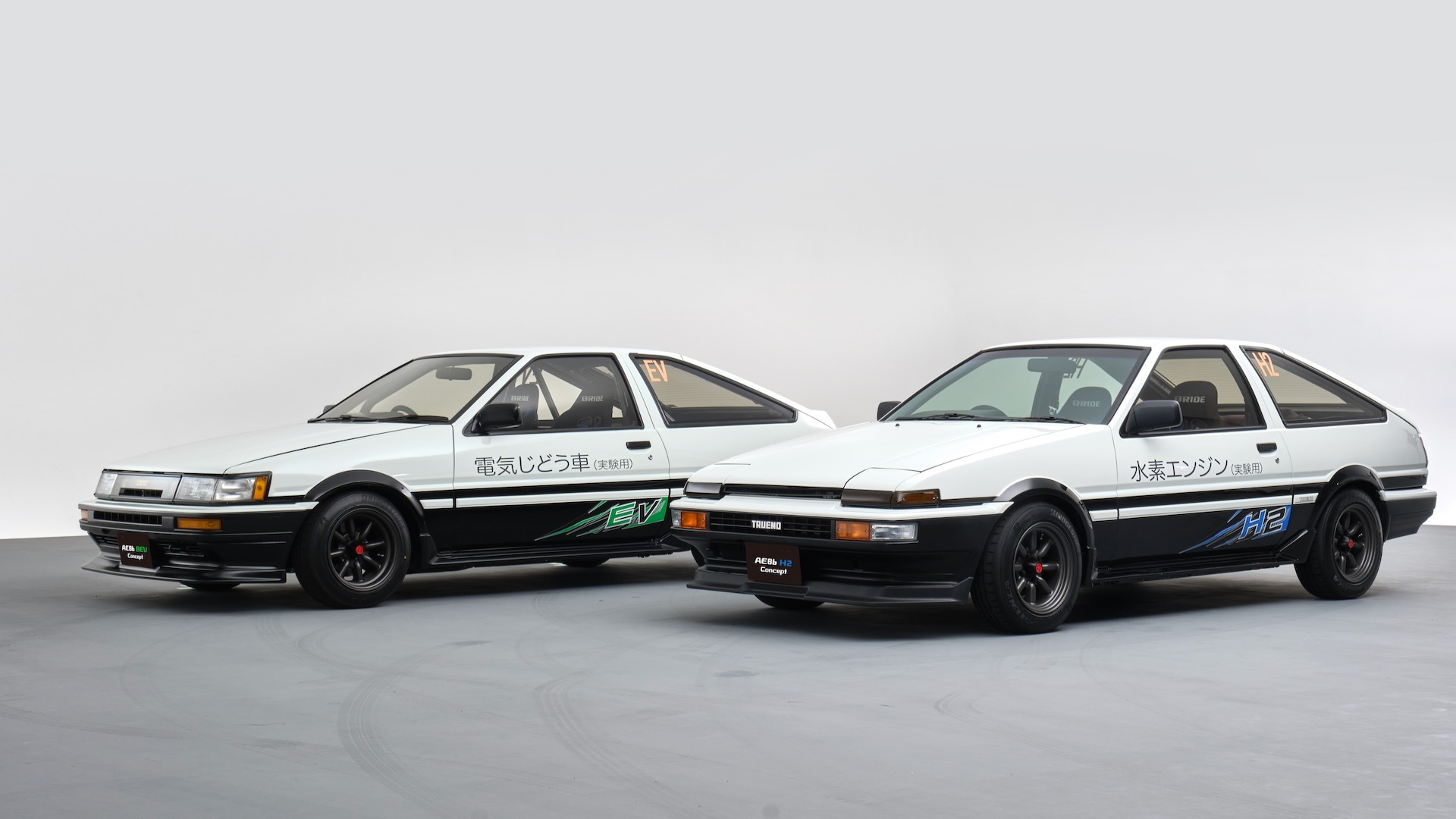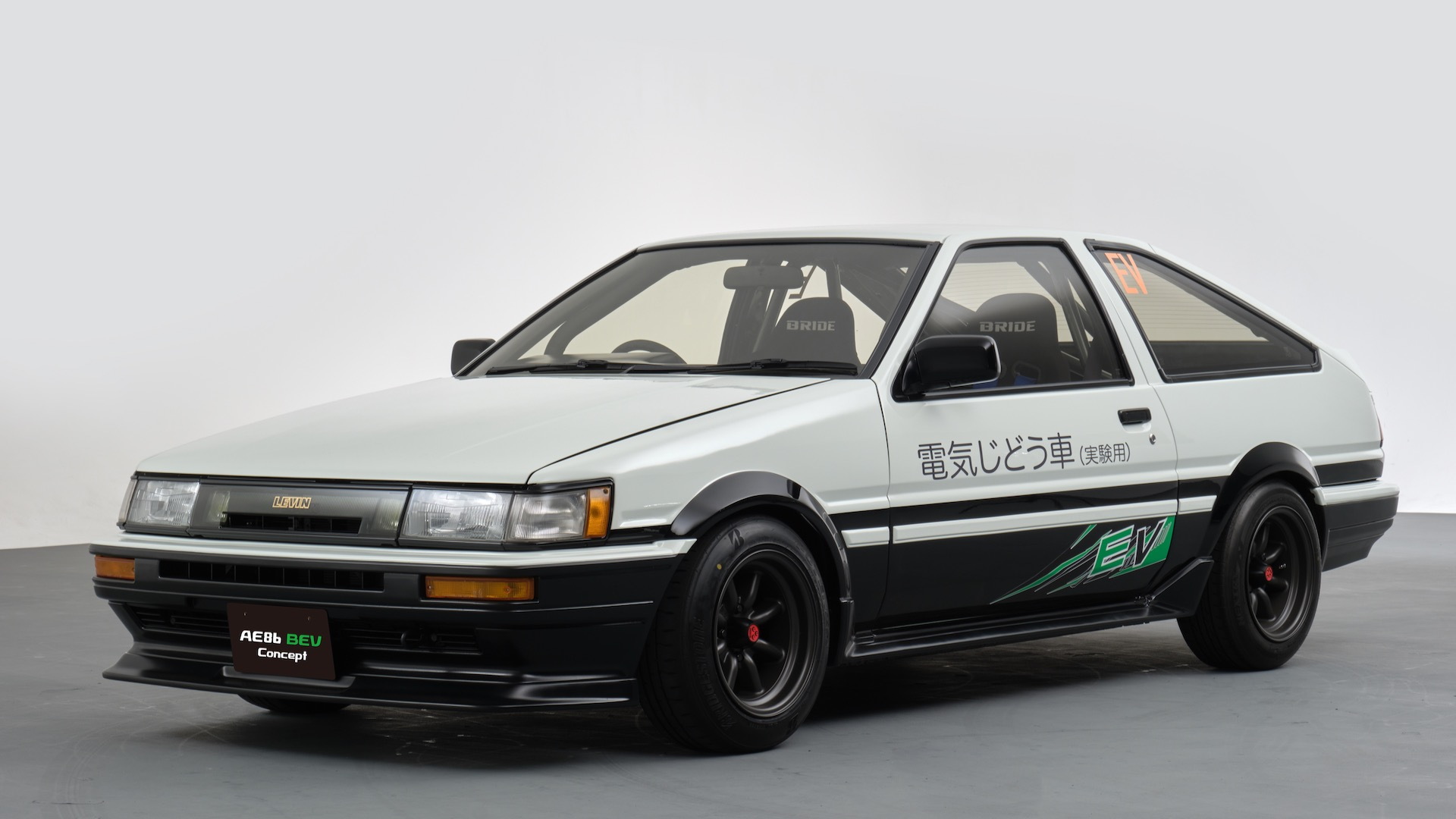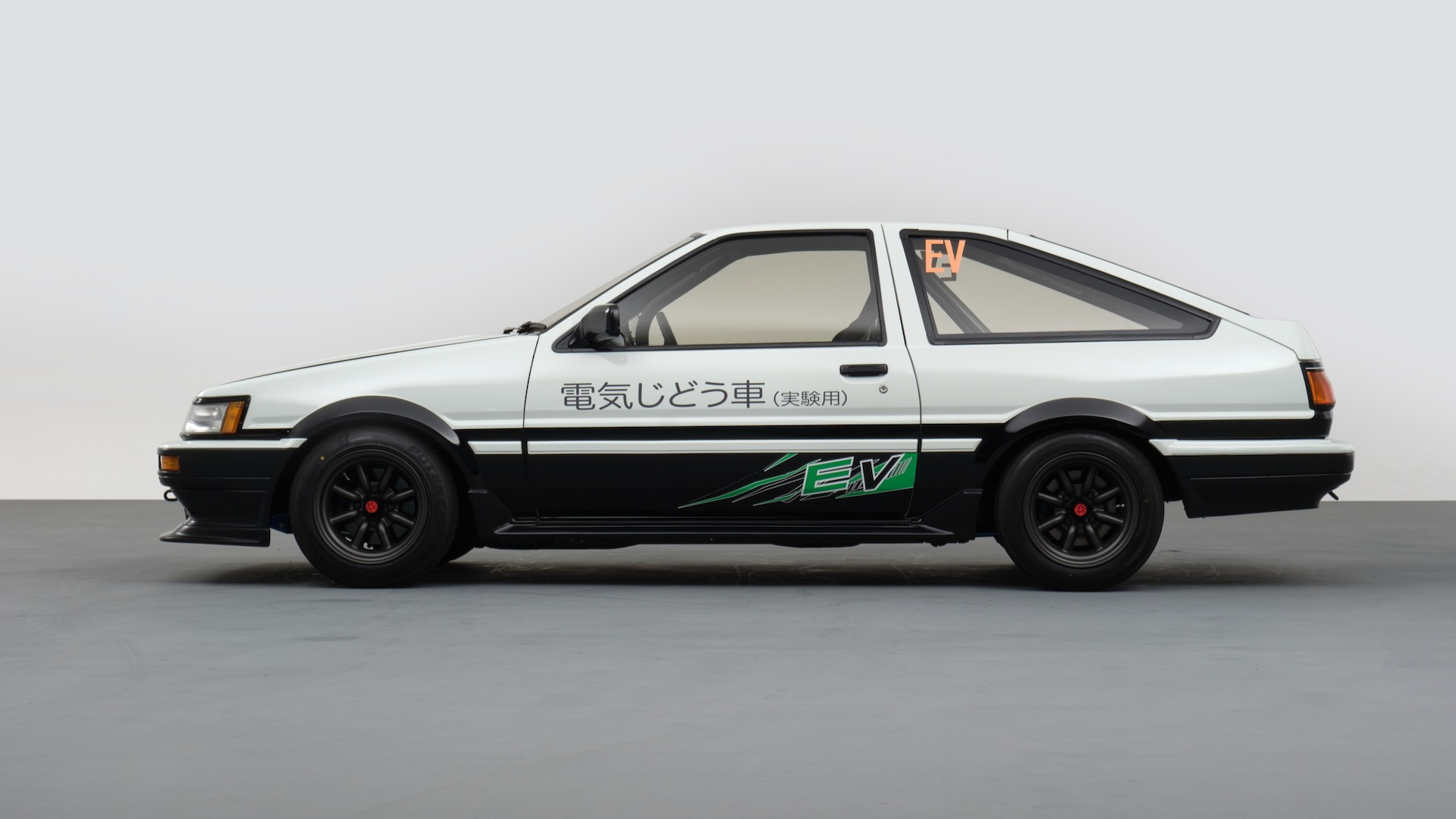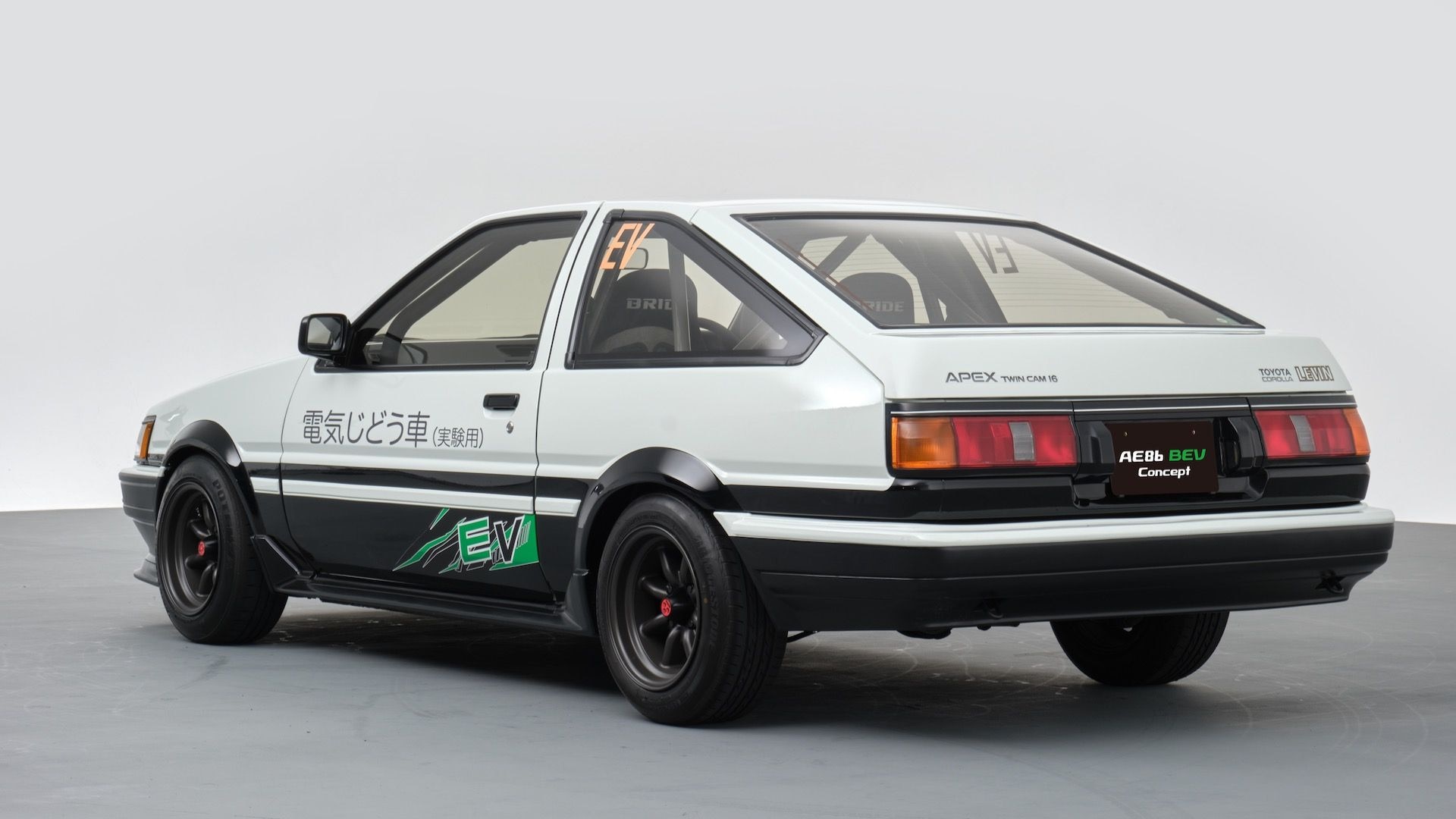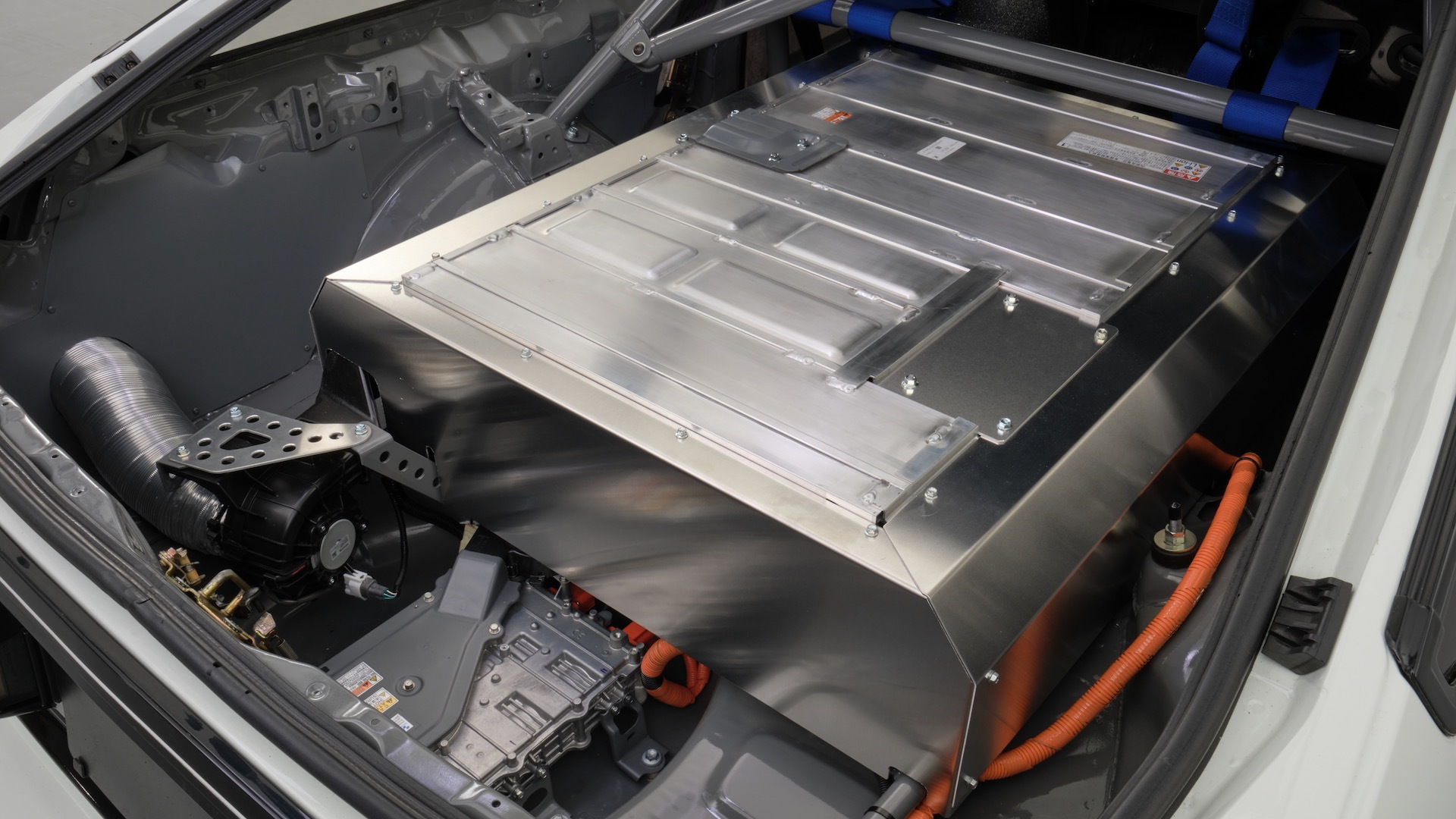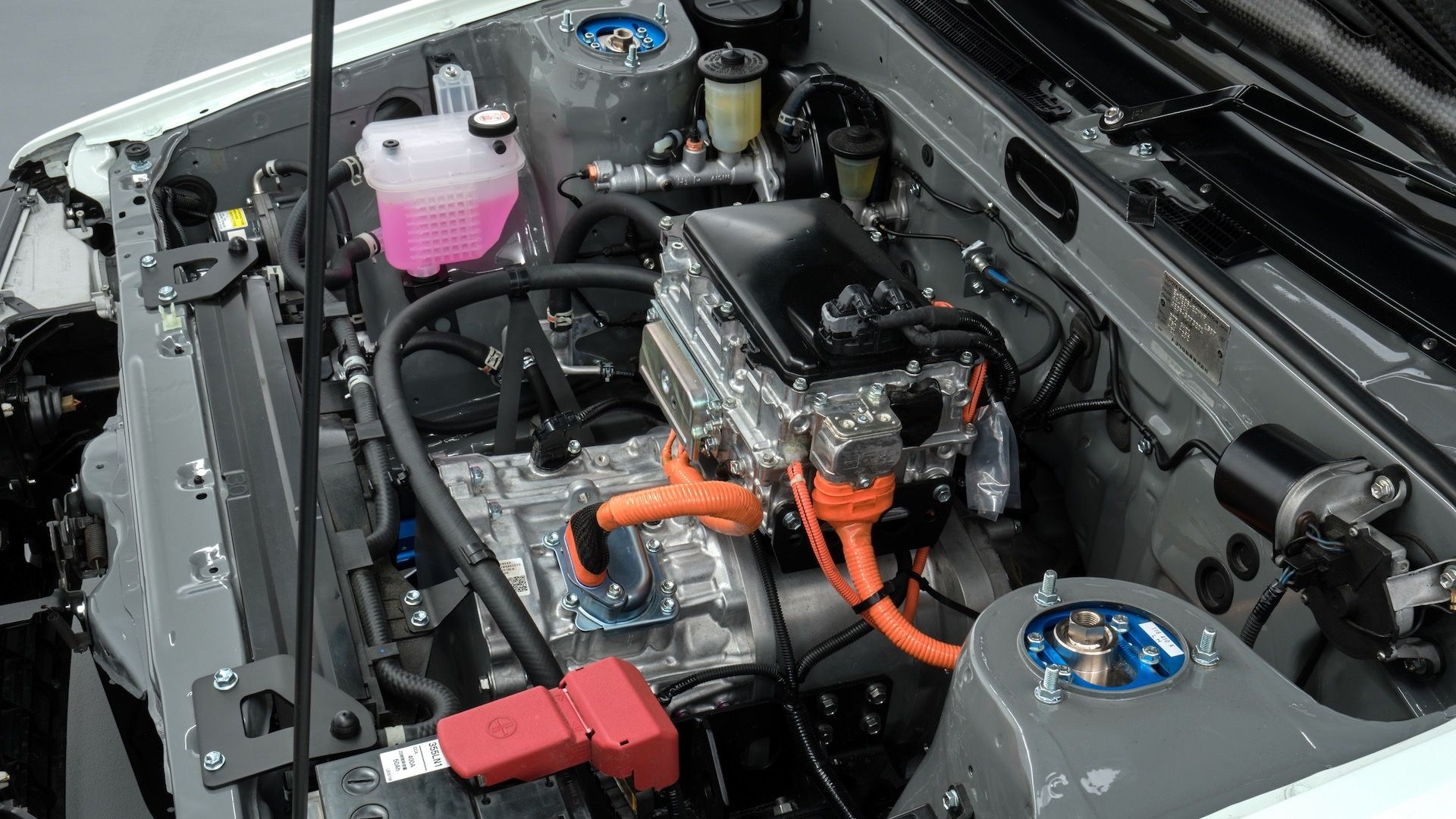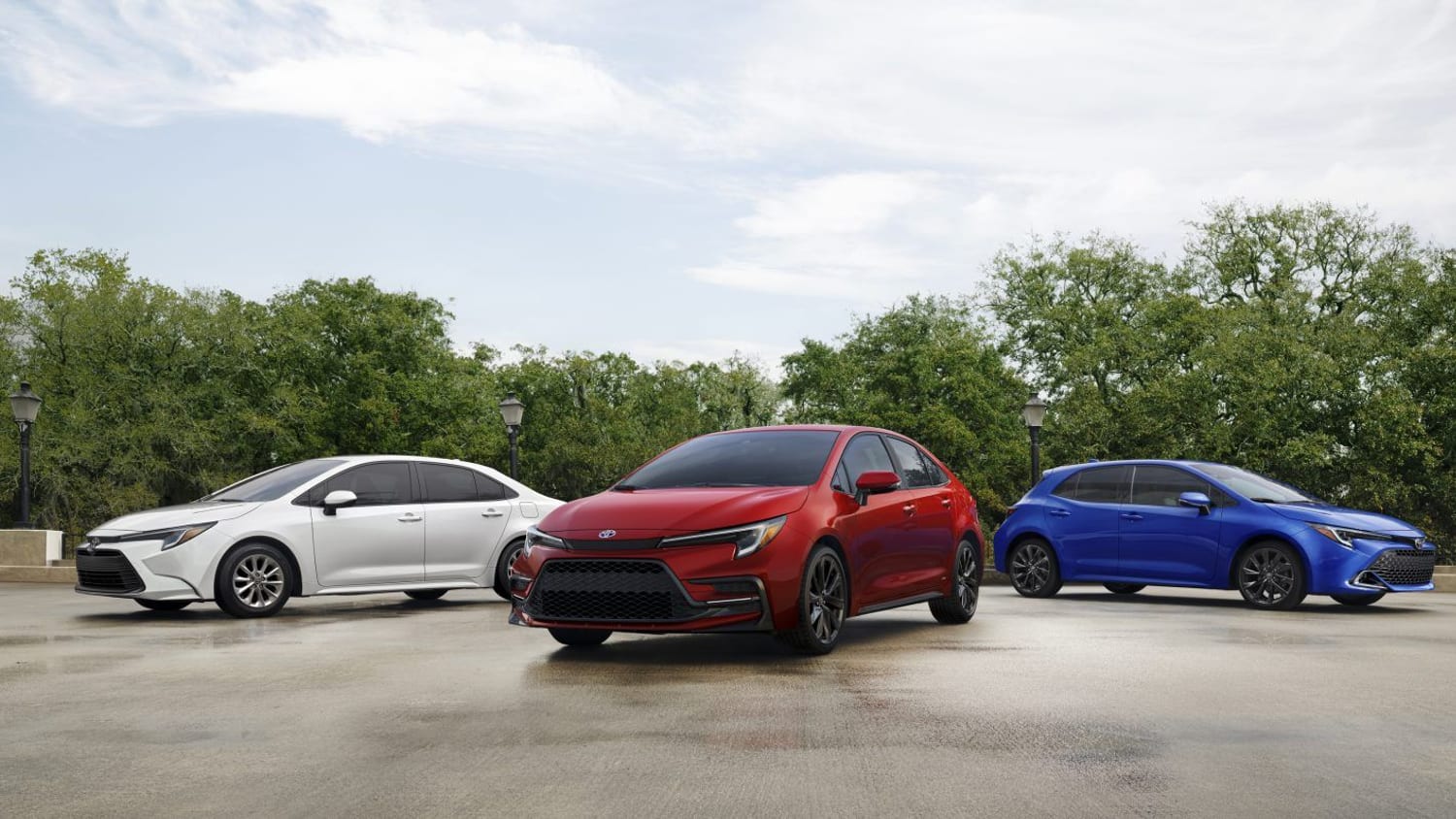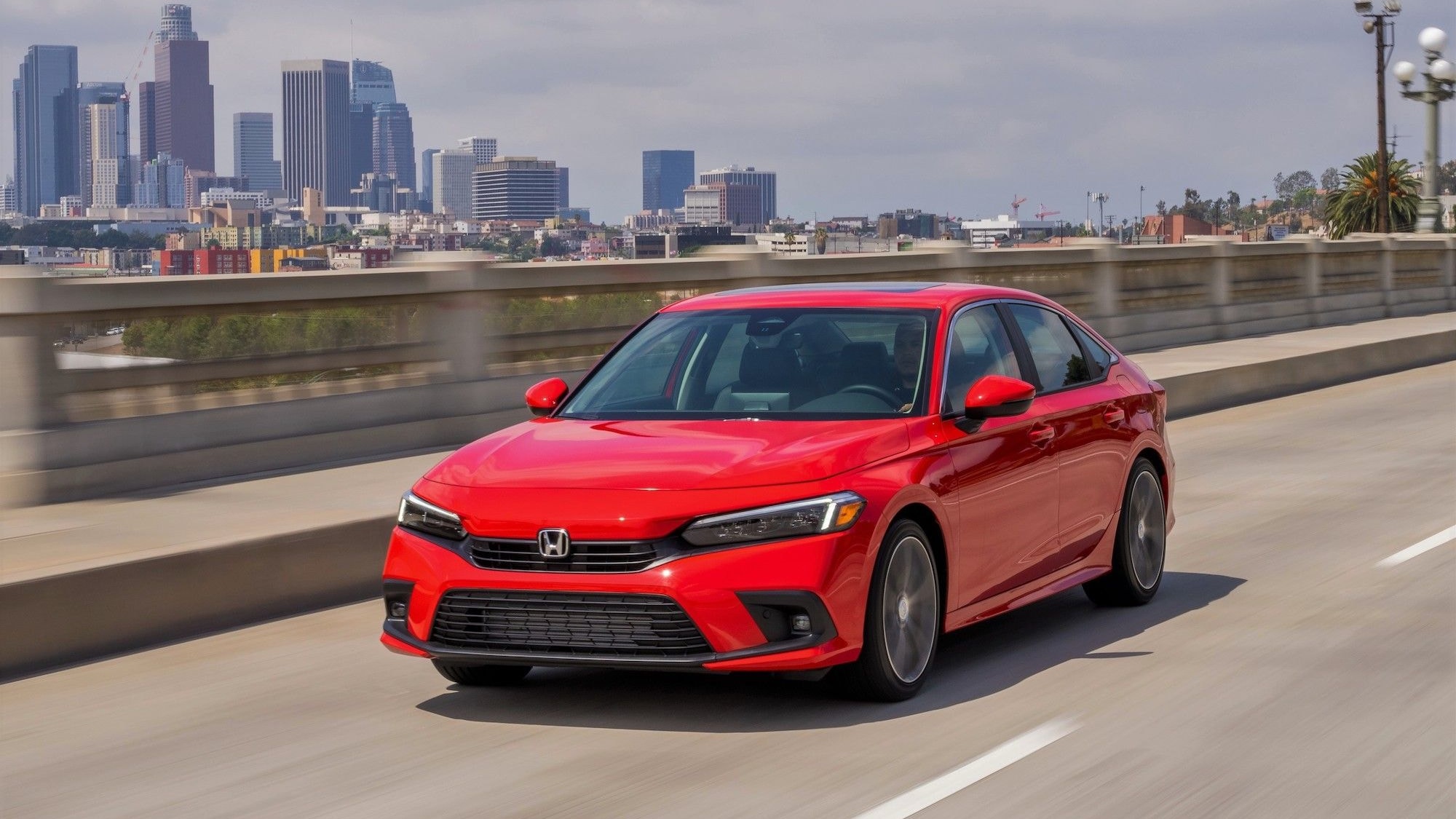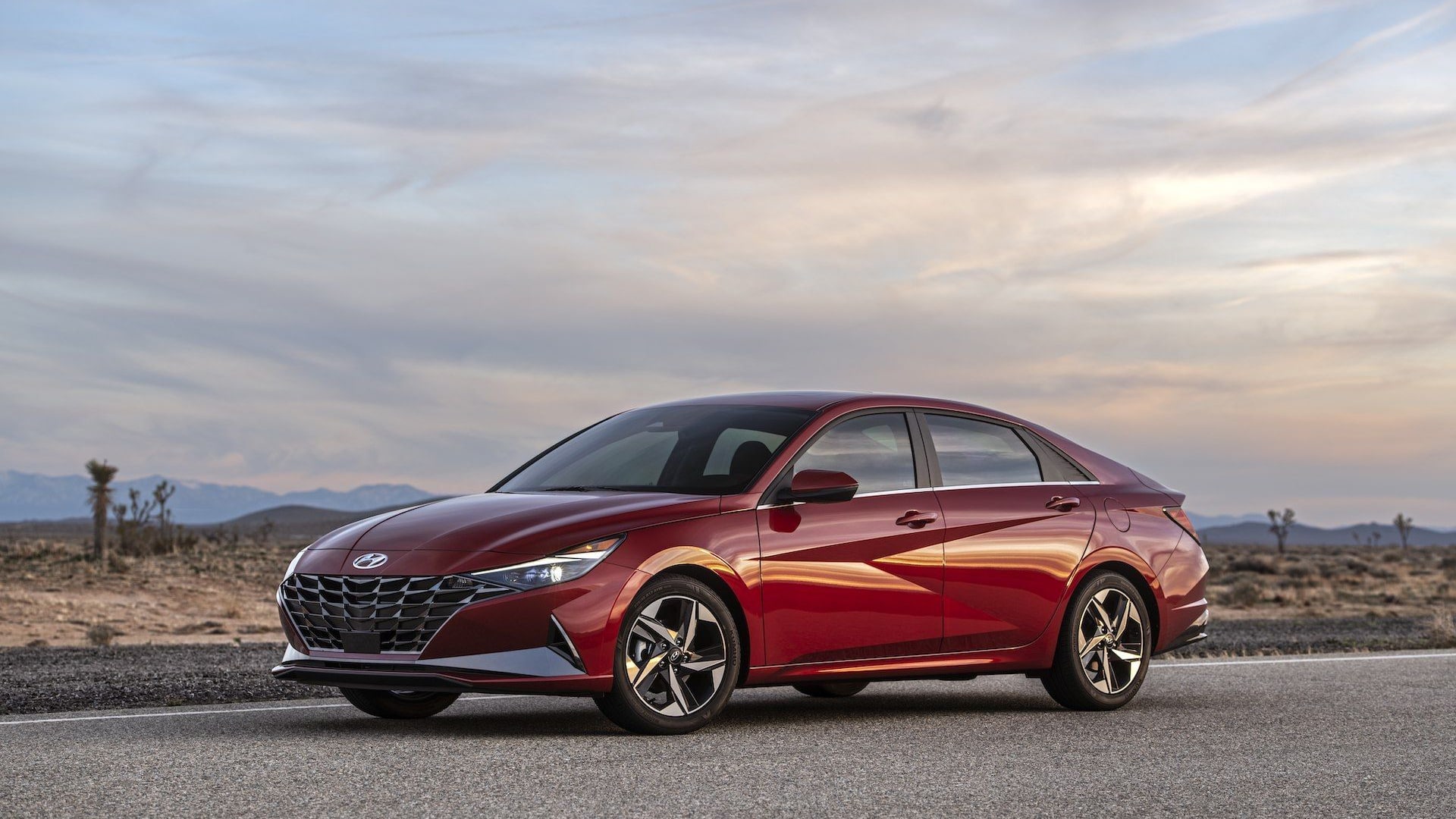Toyota has resto-modded examples of the 1980s Corolla GT-S with battery-electric and hydrogen powertrains as part of a plan to extend the lives of classic cars.
Debuting at the 2023 Tokyo Auto Salon last weekend, the two concepts are meant to demonstrate how older vehicles—particularly enthusiast cars—can be kept on the road even with stricter emissions standards.
"The reality is that we cannot achieve zero carbon emissions in 2050 simply by switching all new car sales to EVs," Toyota CEO Akio Toyoda said in a speech at the opening of the Tokyo Auto Salon, referencing a company target for emissions reduction. Given the slow turnover rate of global vehicle fleets, older internal-combustion vehicles will indeed stay on the road long after new-car sales go electric.
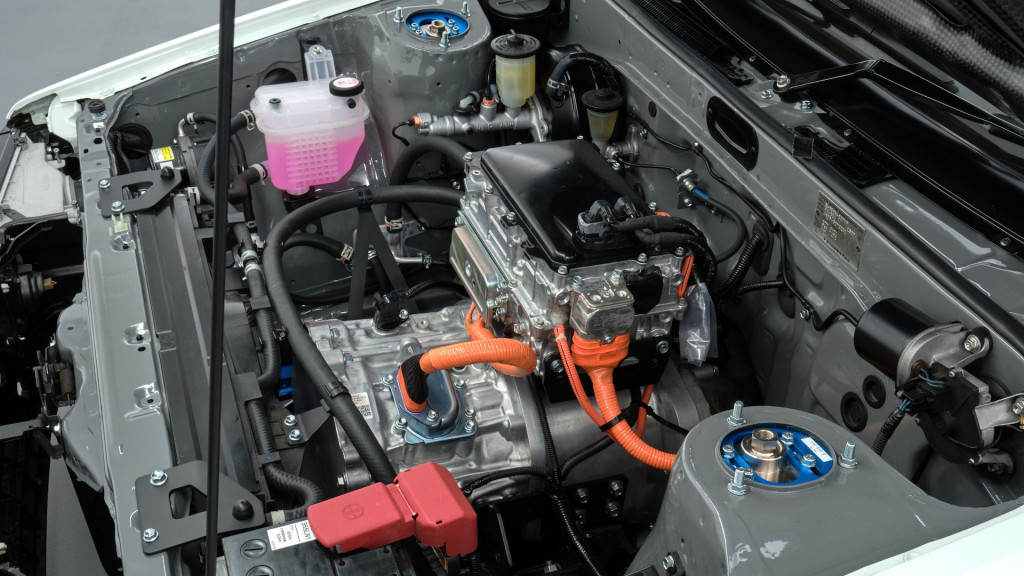
Toyota AE86 BEV concept
That means targeting emissions from those older vehicles as well, which is where the pair of Corolla concepts come in. Boasting rear-wheel drive and an endlessly tunable engine, this version of the Corolla, known by the internal model code AE86, is a favorite of tuners and the namesake of the modern Toyota GR86 sports car. It's the kind of car enthusiasts will want to preserve.
"I hope to dismiss the fear that we won't be able to drive our beloved cars when we go carbon neutral." Toyoda said. "On the contrary, there is a carbon neutral path that car lovers can take."
The pair of concepts present two different paths to lower emissions. One car, the AE86 BEV concept, swaps the stock inline-4 for an electric motor sourced from a Toyota Tundra hybrid and a battery pack from a Prius Prime plug-in hybrid. It retains the stock manual transmission, though, and engineers tried to keep the weight distribution close to stock as well, according to Toyota.
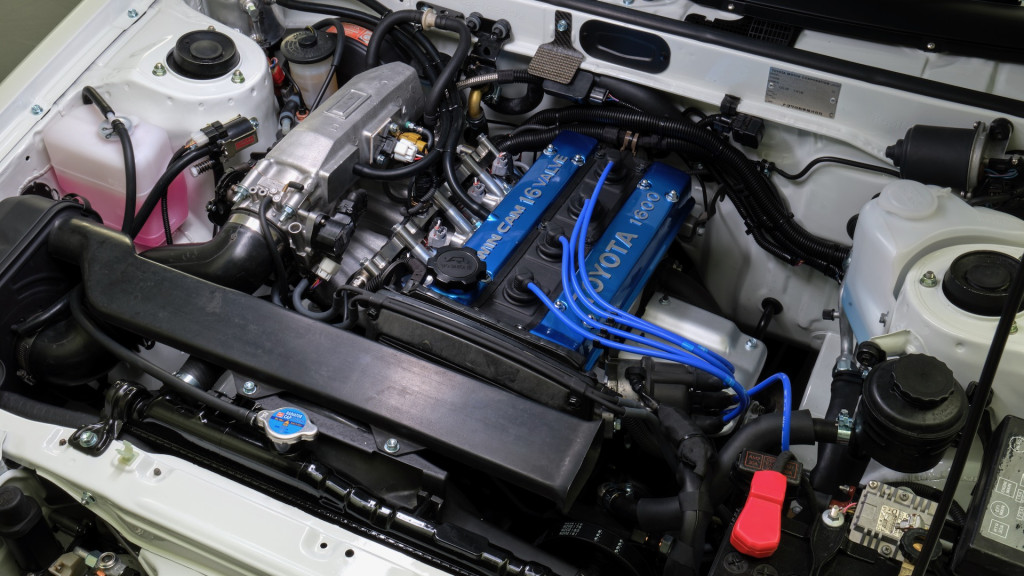
Toyota AE86 H2 concept
Other automakers have toyed with EV conversions before, ranging from the Chevrolet E-10 and Blazer-E to Jaguar's electric E-Type builds. Mini launched an EV program for the original Issigonis-designed Mini in 2022 out of its U.K. factory.
The second concept, dubbed AE86 H2, retains the stock engine and drivetrain, but instead of gasoline, it runs on hydrogen stored in two high-pressure tanks from a Toyota Mirai fuel-cell vehicle.
Toyota has tested hydrogen combustion in racing and developed a prototype hydrogen V-8, but it isn't the first automaker to try the idea. In the early 2000s, BMW produced the Hydrogen 7, a 7-Series sedan with a hydrogen V-12. No automaker appears to have solved the inherent efficiency issues of hydrogen combustion engines, however, so it's unclear if they will ever go mainstream.
